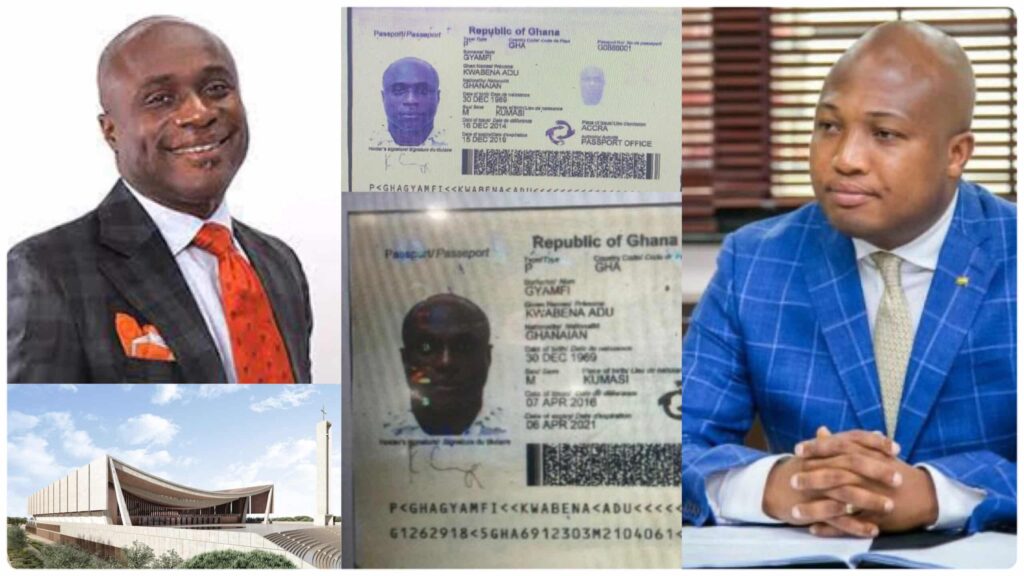The Commission on Human Rights and Administrative Justice (CHRAJ) is under scrutiny for its handling of the alleged double identity case involving Rev. Victor Kusi Boateng and Kwabena Adu Gyamfi. Critics argue that the Commission’s conclusions failed to address key pieces of evidence, undermining its credibility and leaving critical questions unanswered.
Key Oversights in CHRAJ’s Ruling:
- Conflict in Official Documents:
CHRAJ did not explain how Rev. Kusi Boateng, listed as born on 7th September 1971 in the National Cathedral incorporation records, was issued a diplomatic passport under the name Kwabena Adu Gyamfi, with a different date of birth: 30th December 1969. This raises questions about transparency in the issuance of official documents. - Disregarded Ghana Revenue Authority (GRA) Evidence:
Evidence from the GRA confirmed that Victor Kusi Boateng and Kwabena Adu Gyamfi are listed as two separate identities in its database, complete with different Taxpayer Identification Numbers (TINs), dates of birth, and maternal information. CHRAJ’s failure to engage with this critical evidence has fueled skepticism. - Driver’s License and Ghana Card Records:
CHRAJ overlooked records from the Driver and Vehicle Licensing Authority (DVLA) and the National Identification Authority, which corroborate the use of distinct names—Victor Kusi Boateng and Kwabena Adu Gyamfi—on official documents. - Electoral Commission Database Inconsistencies:
The Commission failed to probe inconsistencies in voter registration records. Rev. Boateng/Gyamfi appears with varying ages across election years: 40 years old in 2016 and 50 years old in 2020—an improbable discrepancy over just four years. - Court Judgement Ignored:
A 2023 High Court ruling criticized the conduct of Victor Kusi Boateng/Kwabena Adu Gyamfi, describing it as bordering on criminality. CHRAJ did not incorporate this judicial perspective into its review.
Implications of CHRAJ’s Findings:
While CHRAJ asserts that Rev. Kusi Boateng possesses a single passport under the name Kwabena Adu Gyamfi, this does not address the broader concerns about conflicting identities and potential misuse of official documentation. The omissions in CHRAJ’s investigation have led to accusations of bias and questions about its independence.
Call for Accountability:
Ghanaians demand a comprehensive inquiry that incorporates all available evidence to restore confidence in CHRAJ and ensure that no individual is above the law. As the case continues to unfold, the pursuit of truth remains paramount.



